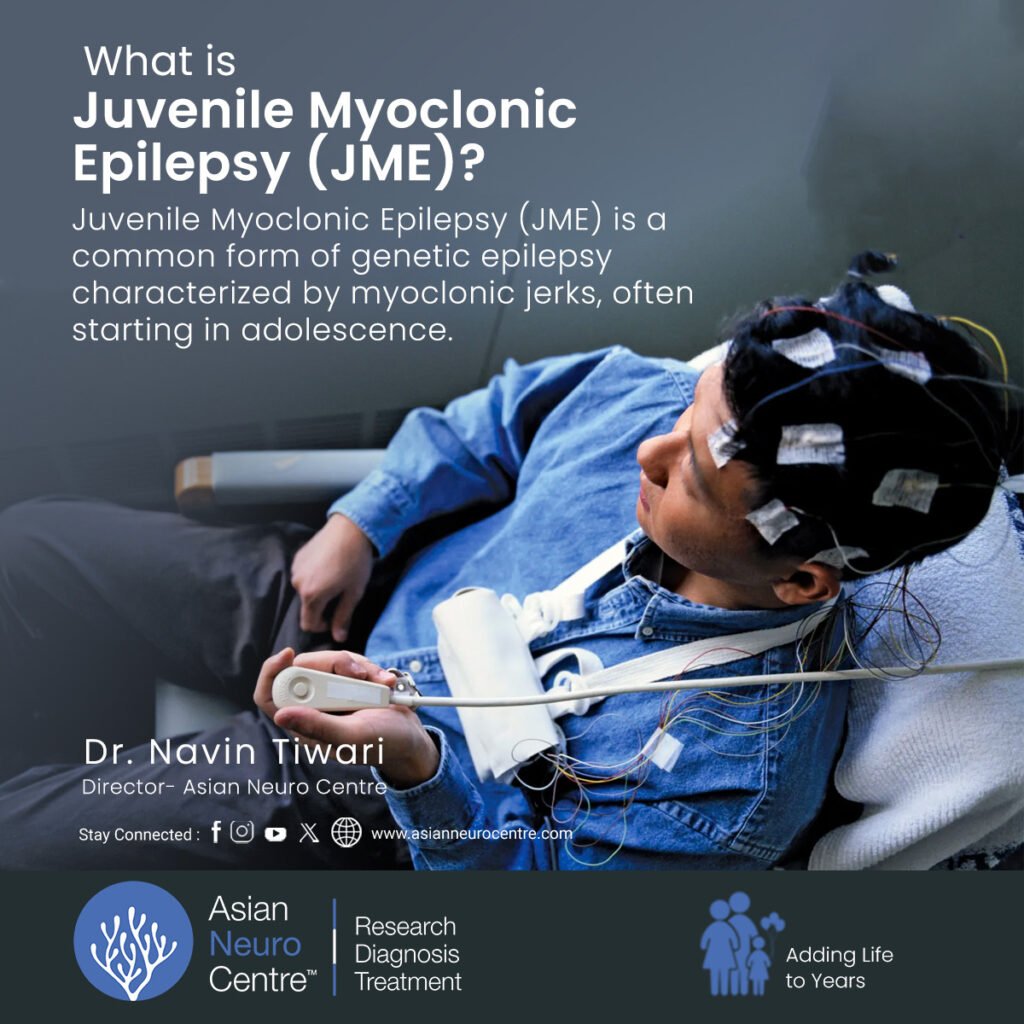- Have any questions?
- 911 12345 29
- info@asianneurocentre.com
Juvenile Myoclonic Epilepsy, Symptoms, Causes, Treatment
What is the Difference Between Epilepsy and Seizures?
March 22, 2024Cervicogenic Headache, Symptoms, Causes, Treatment
April 2, 2024What is Juvenile Myoclonic Epilepsy (JME)?
Juvenile Myoclonic Epilepsy (JME) is a type of epilepsy that typically begins in adolescence or early adulthood. It is characterized by sudden, brief muscle jerks or twitches, known as myoclonic seizures.
These seizures often occur upon waking up and can affect the arms, shoulders, and sometimes the legs. Individuals with JME may also experience tonic-clonic seizures, which involve loss of consciousness, stiffening of muscles, and jerking movements.
It is important for individuals with JME to work closely with doctors to find the most suitable treatment plan for controlling seizures and improving overall quality of life.

Symptoms of Juvenile Myoclonic Epilepsy
Some of the common symptoms are mentioned below:
- Sudden jerking movements, often in the arms and shoulders.
- Muscle stiffness and loss of consciousness during intense seizures.
- Short episodes of staring or unawareness may occur.
- Seizures tend to happen in groups, especially in the morning.
- Believed to involve genetic influences as a contributing factor.
Causes of Juvenile Myoclonic Epilepsy
Juvenile Myoclonic Epilepsy (JME) is primarily caused by genetic factors, often running in families. It typically emerges during adolescence. Triggers such as lack of sleep, stress, or alcohol consumption can worsen symptoms.
Brain abnormalities or disorders in the activity of the brain may also contribute to the development of this condition. The condition usually persists into adulthood, but effective management through medications and lifestyle adjustments can significantly improve the quality of life for those with JME.
Treatment of Juvenile Myoclonic Epilepsy
The treatment for juvenile myoclonic epilepsy (JME) usually involves medications to control seizures which can help manage and reduce the frequency of seizures.
It is very important for individuals with JME to take their medications consistently as prescribed by their doctor to achieve better results. Alongside medication, maintaining a regular sleep schedule, managing stress, and avoiding alcohol can be beneficial in preventing seizures.
Regular check-ups with a doctor are essential to monitor the effectiveness of the treatment plan and make adjustments if needed. For some individuals, epilepsy surgery may be considered in specific cases.
Dr. Navin Tiwari
Consulting Neurologist
